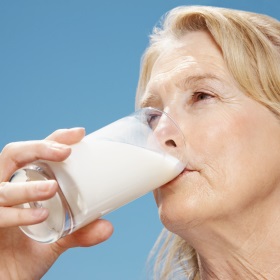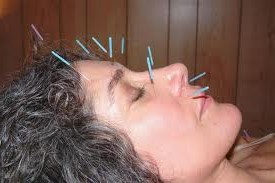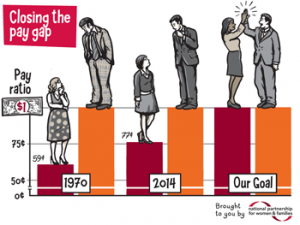 The number of menopausal women is projected to reach 50 million by 2020. With changing views on appropriate therapies to control symptoms and new treatments available and on the horizon, most internists lack the core competencies and experience to meet the needs of women entering menopause, according to a provocative Commentary published in Journal of Women’s Health, a peer-reviewed publication from Mary Ann Liebert, Inc., publishers. The article is available free on the Journal of Women’s Health website.
The number of menopausal women is projected to reach 50 million by 2020. With changing views on appropriate therapies to control symptoms and new treatments available and on the horizon, most internists lack the core competencies and experience to meet the needs of women entering menopause, according to a provocative Commentary published in Journal of Women’s Health, a peer-reviewed publication from Mary Ann Liebert, Inc., publishers. The article is available free on the Journal of Women’s Health website.
The article “Competency in Menopause Management: Whither Goest the Internist?” by Richard Santen, MD, University of Virginia Health Sciences System (Charlottesville), Cynthia Stuenkel, MD, University of California at San Diego, Henry Burger, MD, Monash University (Melbourne, Australia), and JoAnn Manson, MD, Brigham and Women's Hospital, Harvard Medical School (Boston, MA), describes the changing landscape of menopausal symptom management, with renewed use of hormone therapy among recently menopausal women at low risk of breast cancer and heart disease. The emergence of new non-hormonal treatments and other approaches may be unfamiliar to internists who are often ill-prepared to manage symptoms in women who have completed their reproductive years and are approaching or beginning menopause.
“It is essential that new curricula be developed to train internists in the core competencies needed to manage menopausal symptoms,” says Susan G. Kornstein, MD, Editor-in-Chief of Journal of Women’s Health, Executive Director of the Virginia Commonwealth University Institute for Women’s Health, Richmond, VA, and President of the Academy of Women’s Health. To learn more about menopause symptom management visit menopause.northwestern.edu

 Drinking milk is not just for kids but also for post-menopausal women, new research shows. A new study from the Women's Health Initiative just published by the North American Menopause Society, reveals that calcium and vitamin D after menopause can improve women's cholesterol profiles.
Drinking milk is not just for kids but also for post-menopausal women, new research shows. A new study from the Women's Health Initiative just published by the North American Menopause Society, reveals that calcium and vitamin D after menopause can improve women's cholesterol profiles. In early February, the
In early February, the  Spring break often means heading to sand and surf!. We hear a lot about sun exposure, staying hydrated and avoiding too much alcohol but is it OK to wear your contacts while in the hot tub or sea? Contact lens are convenient but can expose you to serious conditions such as eye infections and corneal ulcers—something you don’t want to deal with on vacation.
Spring break often means heading to sand and surf!. We hear a lot about sun exposure, staying hydrated and avoiding too much alcohol but is it OK to wear your contacts while in the hot tub or sea? Contact lens are convenient but can expose you to serious conditions such as eye infections and corneal ulcers—something you don’t want to deal with on vacation. Acupuncture has been used in Eastern countries to address women's health issues but is not readily adopted in the U.S. especially by the medical establishment. A new study reports preliminary data indicating that acupuncture may improve menstrual health and overcome delays in becoming pregnant. There are experimental data indicating that acupuncture can influence female reproductive functioning, although the actual mechanisms involved are not yet clarified. Acupuncture is a complex intervention yet the evaluation of acupuncture research designs and outcome measures expect a level of commensurability difficult to achieve in complex interventions. A focus on effectiveness rather than efficacy may be a solution. Further research is needed that includes the rich traditions of acupuncture practice and the rigorous methods of evidence-based research.
Acupuncture has been used in Eastern countries to address women's health issues but is not readily adopted in the U.S. especially by the medical establishment. A new study reports preliminary data indicating that acupuncture may improve menstrual health and overcome delays in becoming pregnant. There are experimental data indicating that acupuncture can influence female reproductive functioning, although the actual mechanisms involved are not yet clarified. Acupuncture is a complex intervention yet the evaluation of acupuncture research designs and outcome measures expect a level of commensurability difficult to achieve in complex interventions. A focus on effectiveness rather than efficacy may be a solution. Further research is needed that includes the rich traditions of acupuncture practice and the rigorous methods of evidence-based research. Melissa Simon, MD, and member of the Women’s Health Research Institute’s Leadership Council wrote a powerful
Melissa Simon, MD, and member of the Women’s Health Research Institute’s Leadership Council wrote a powerful 
 Most of us get headaches from time to time. Some are mild. Others cause throbbing pain. They can last for minutes or days. There are many different types of headaches. How you treat yours depends on which kind you have.
Most of us get headaches from time to time. Some are mild. Others cause throbbing pain. They can last for minutes or days. There are many different types of headaches. How you treat yours depends on which kind you have.